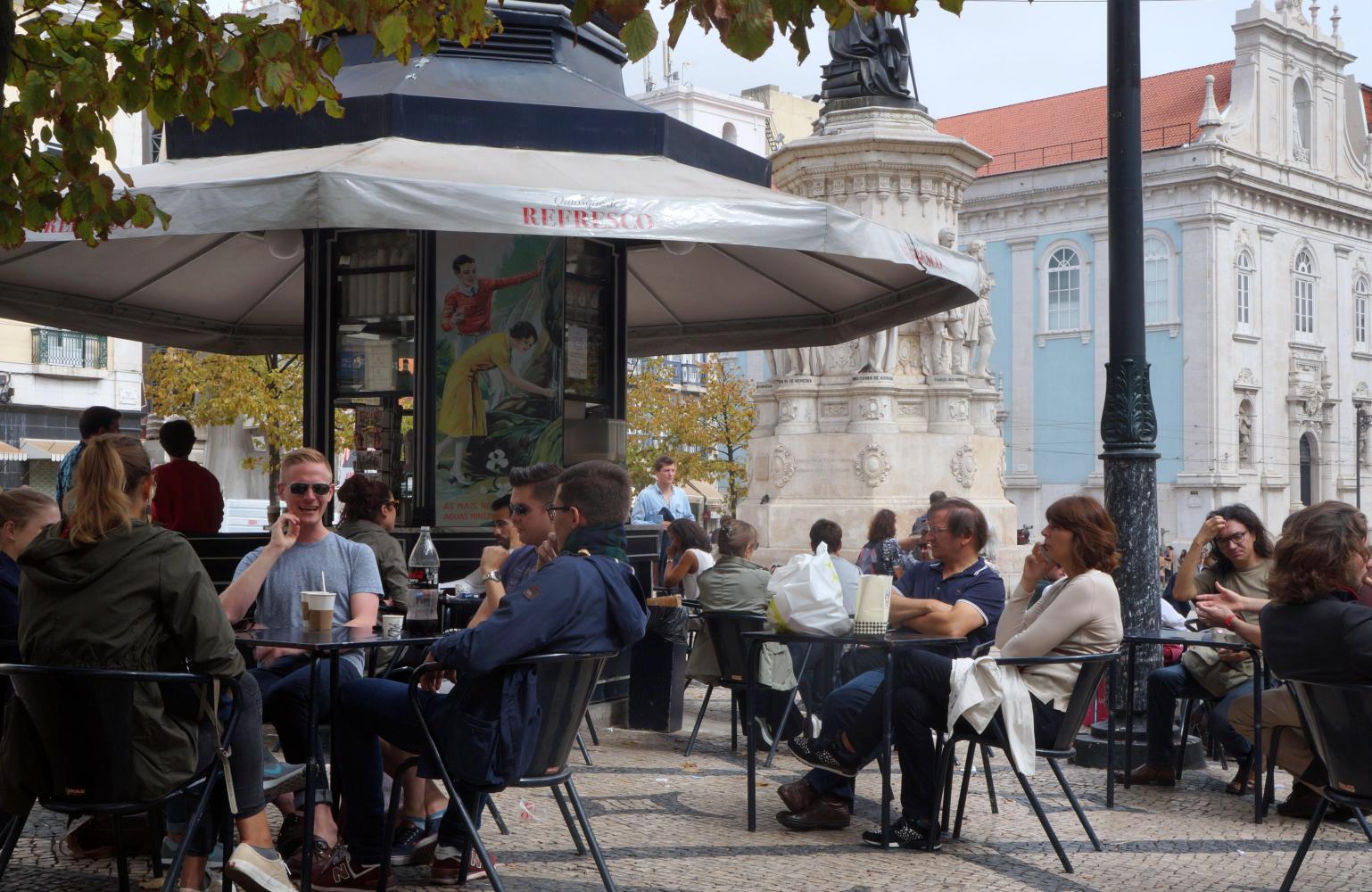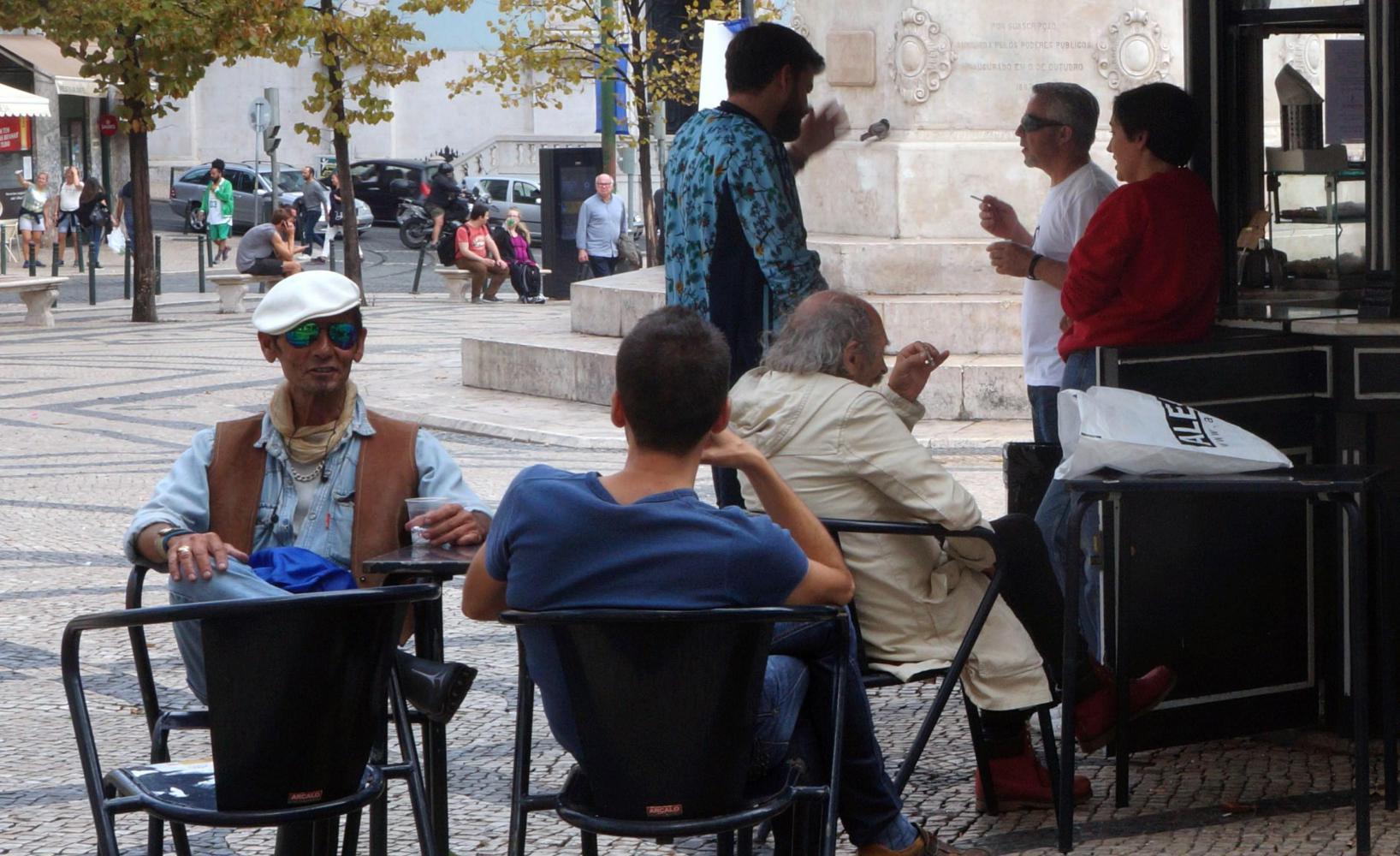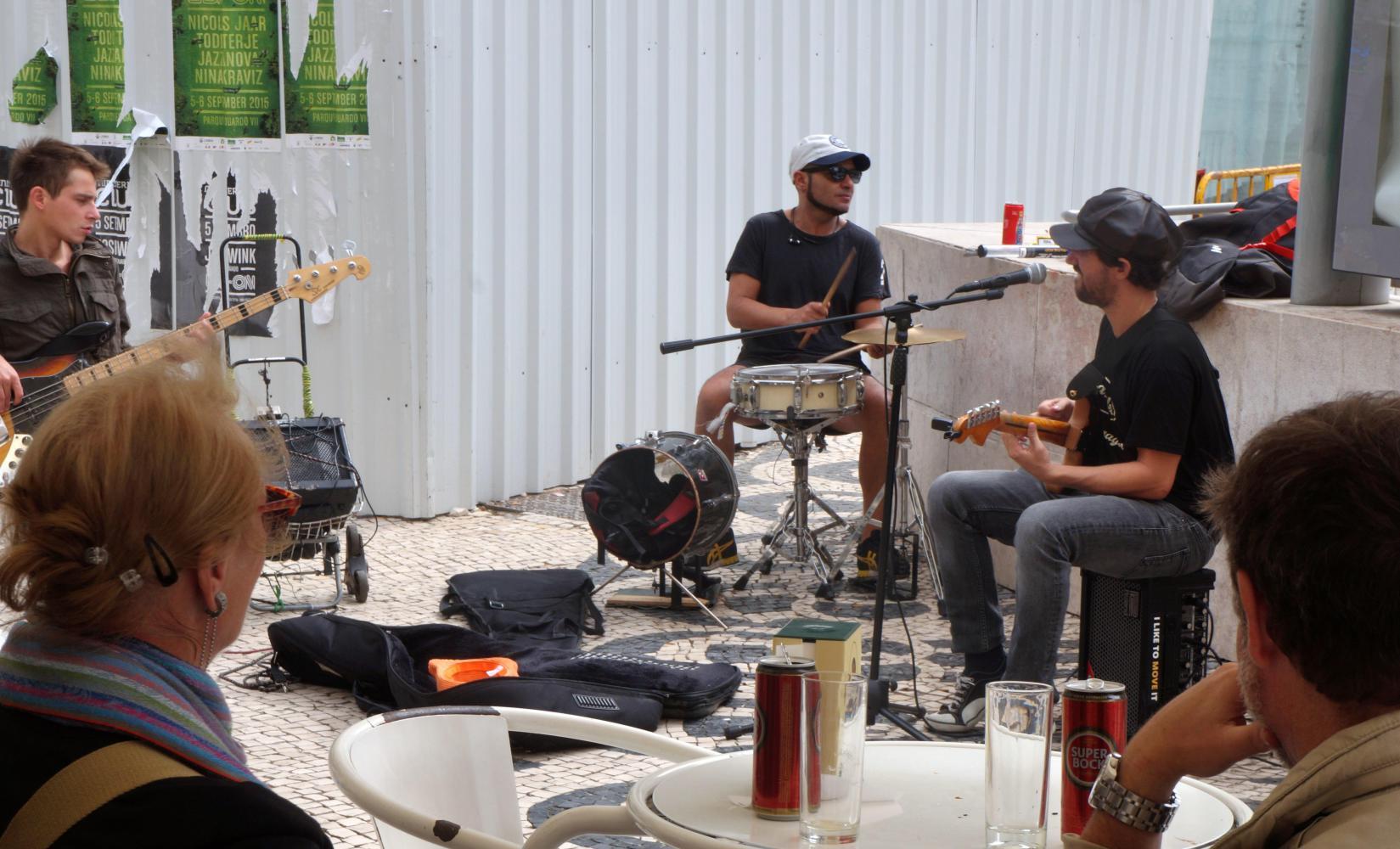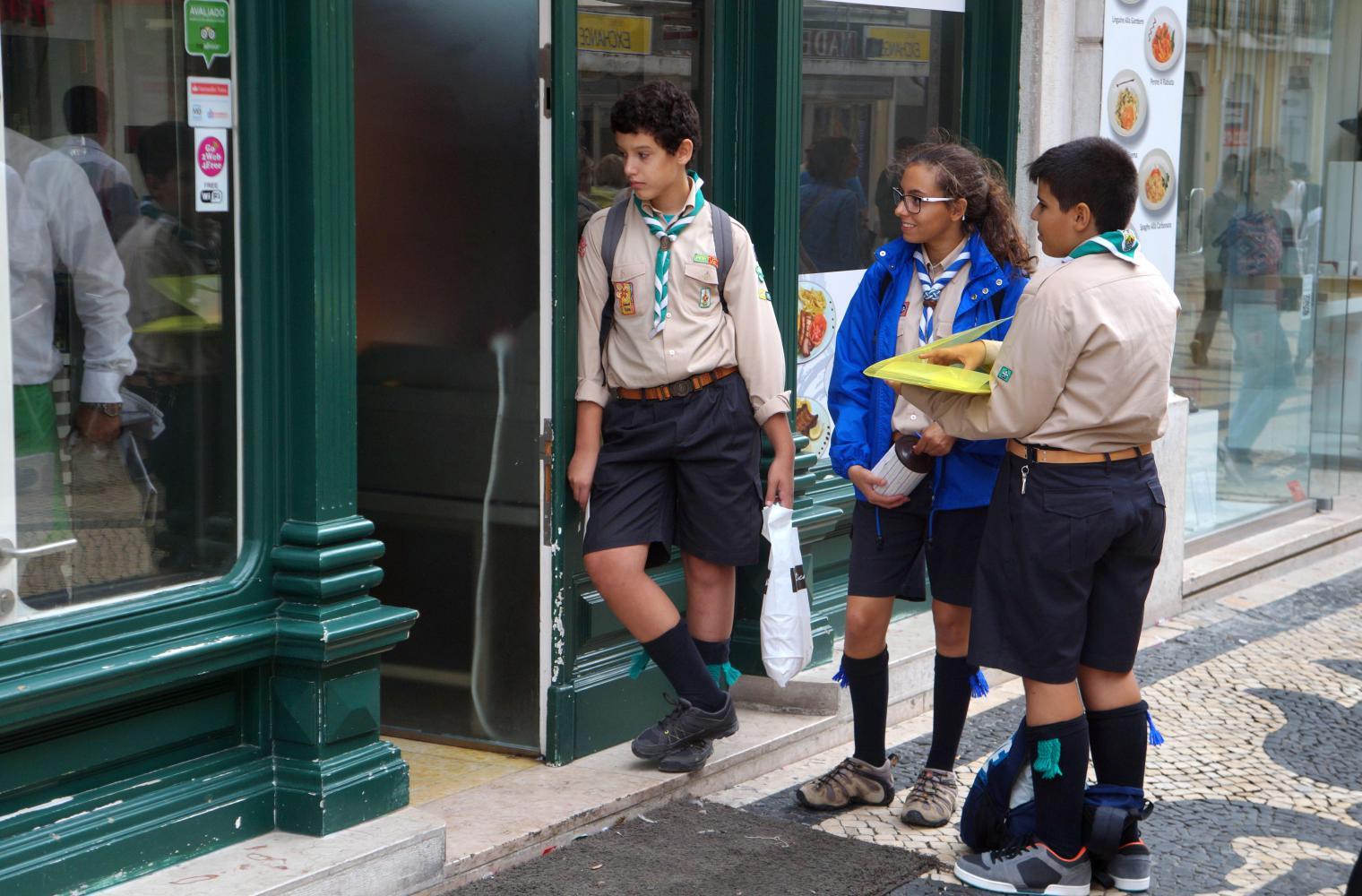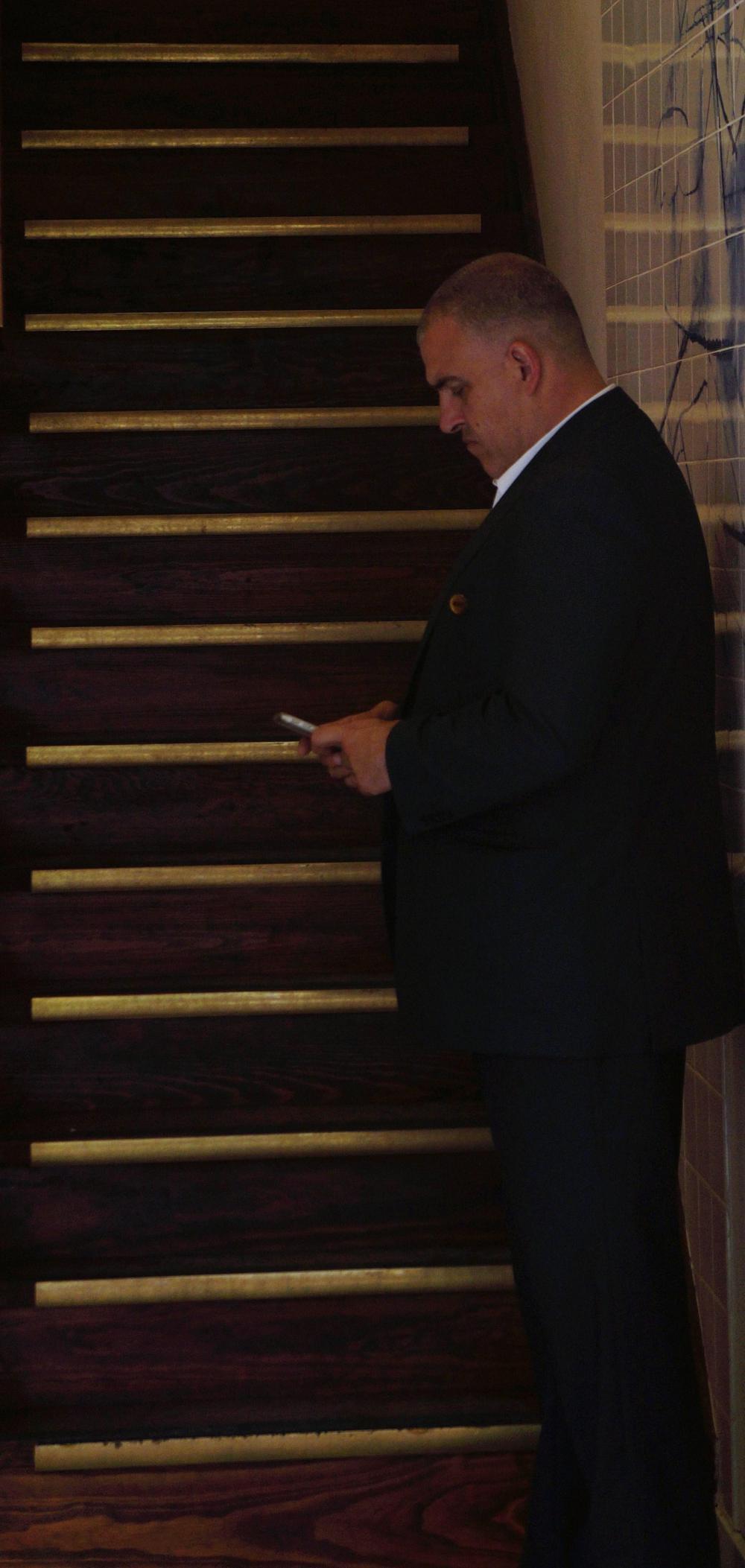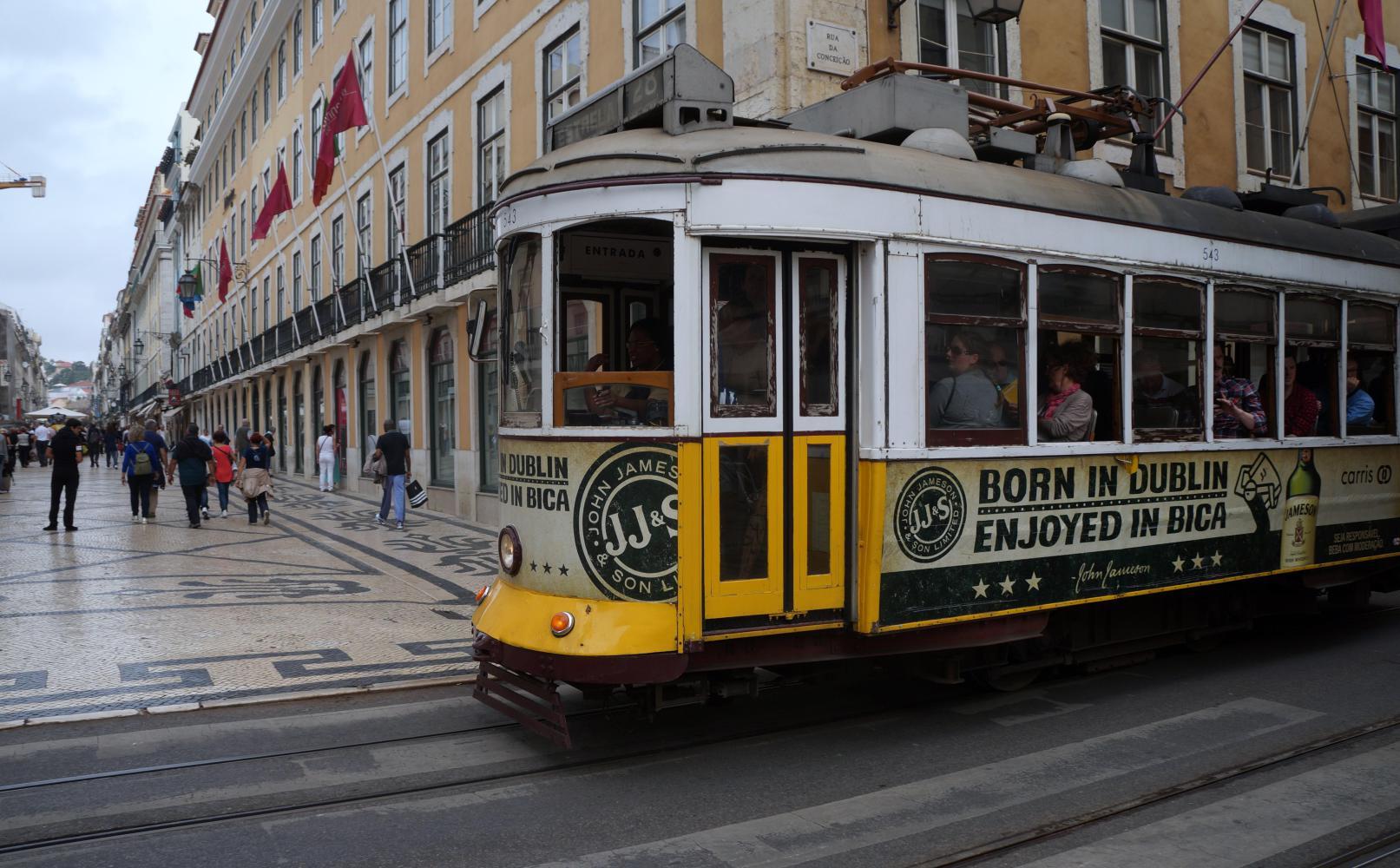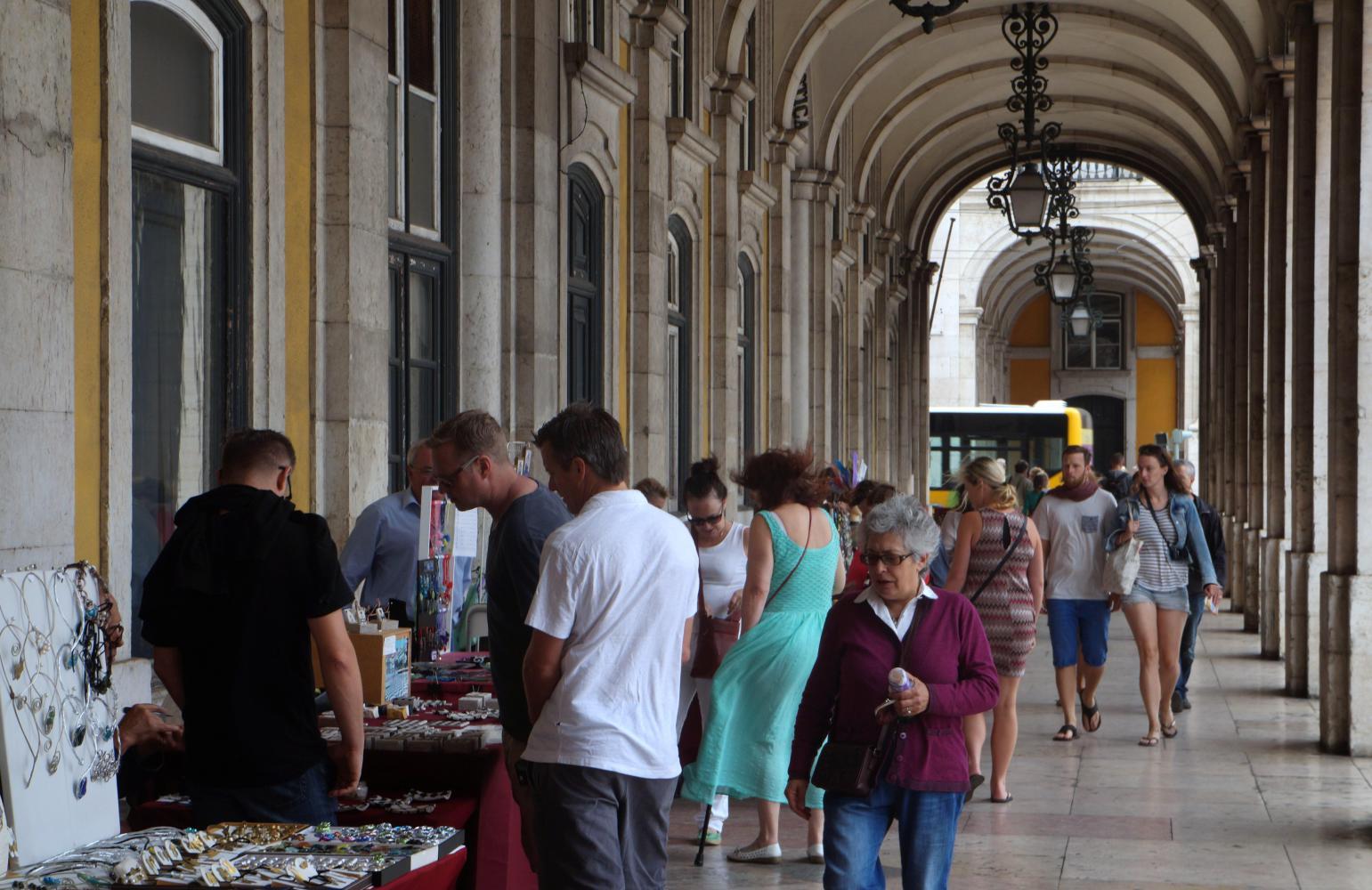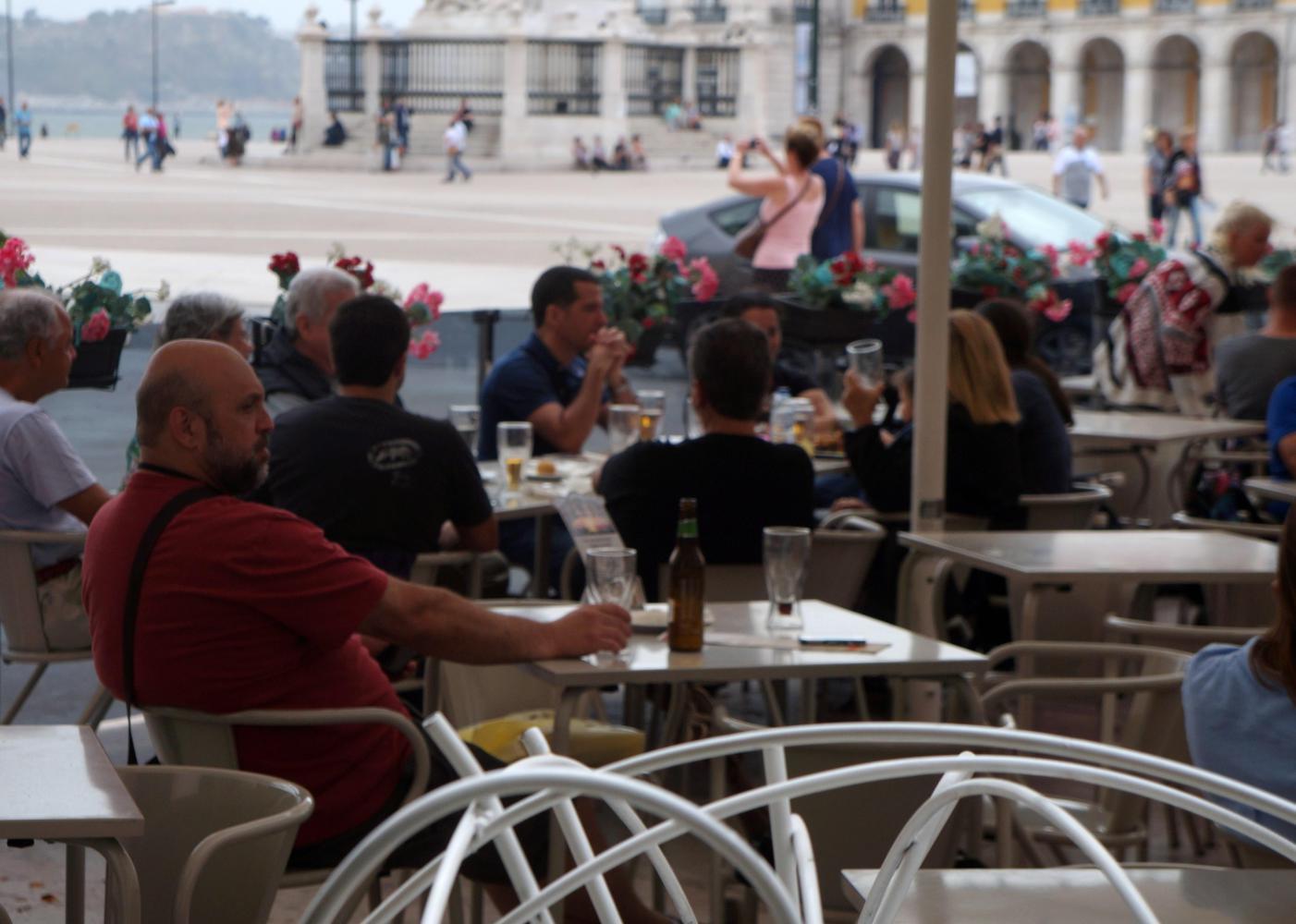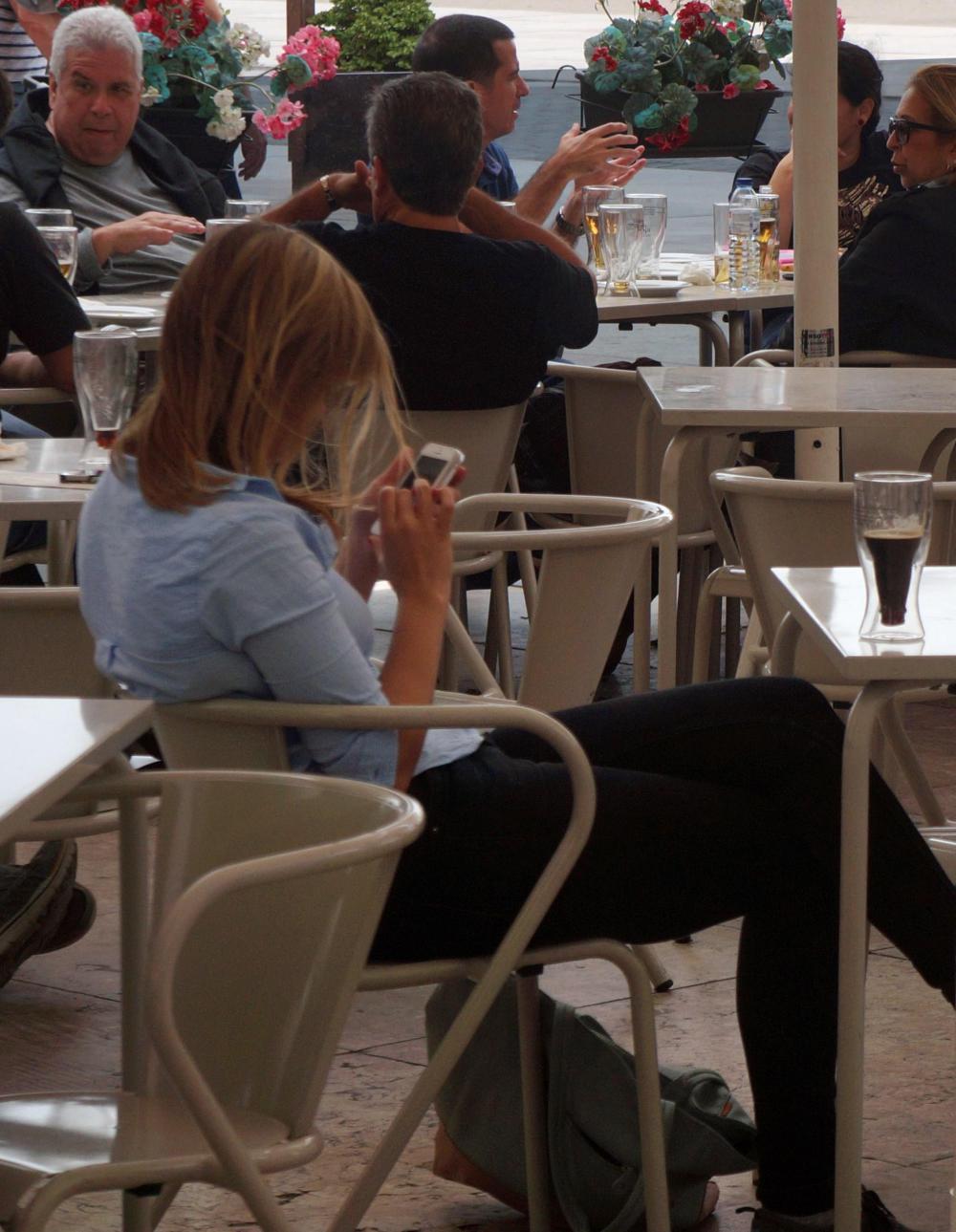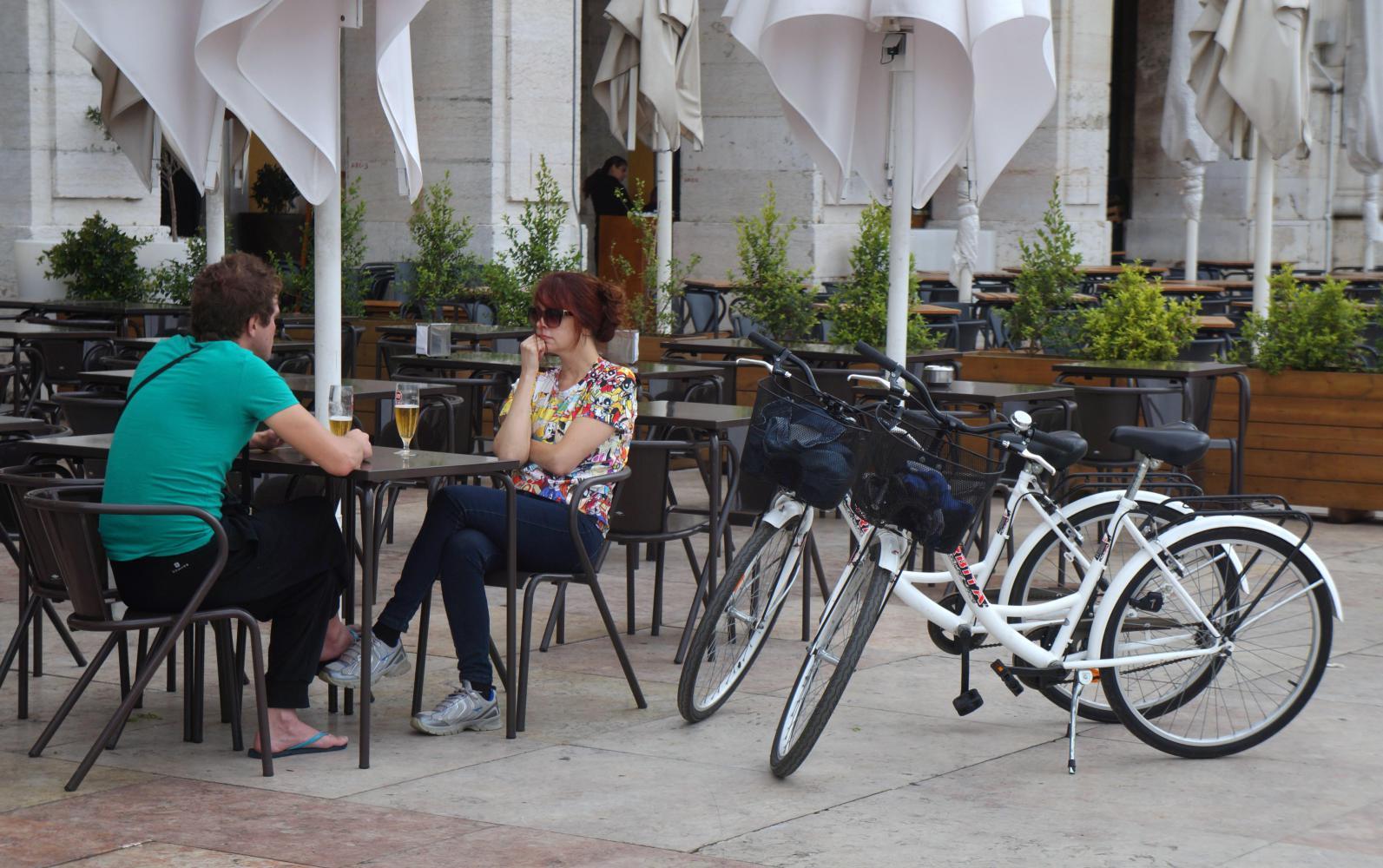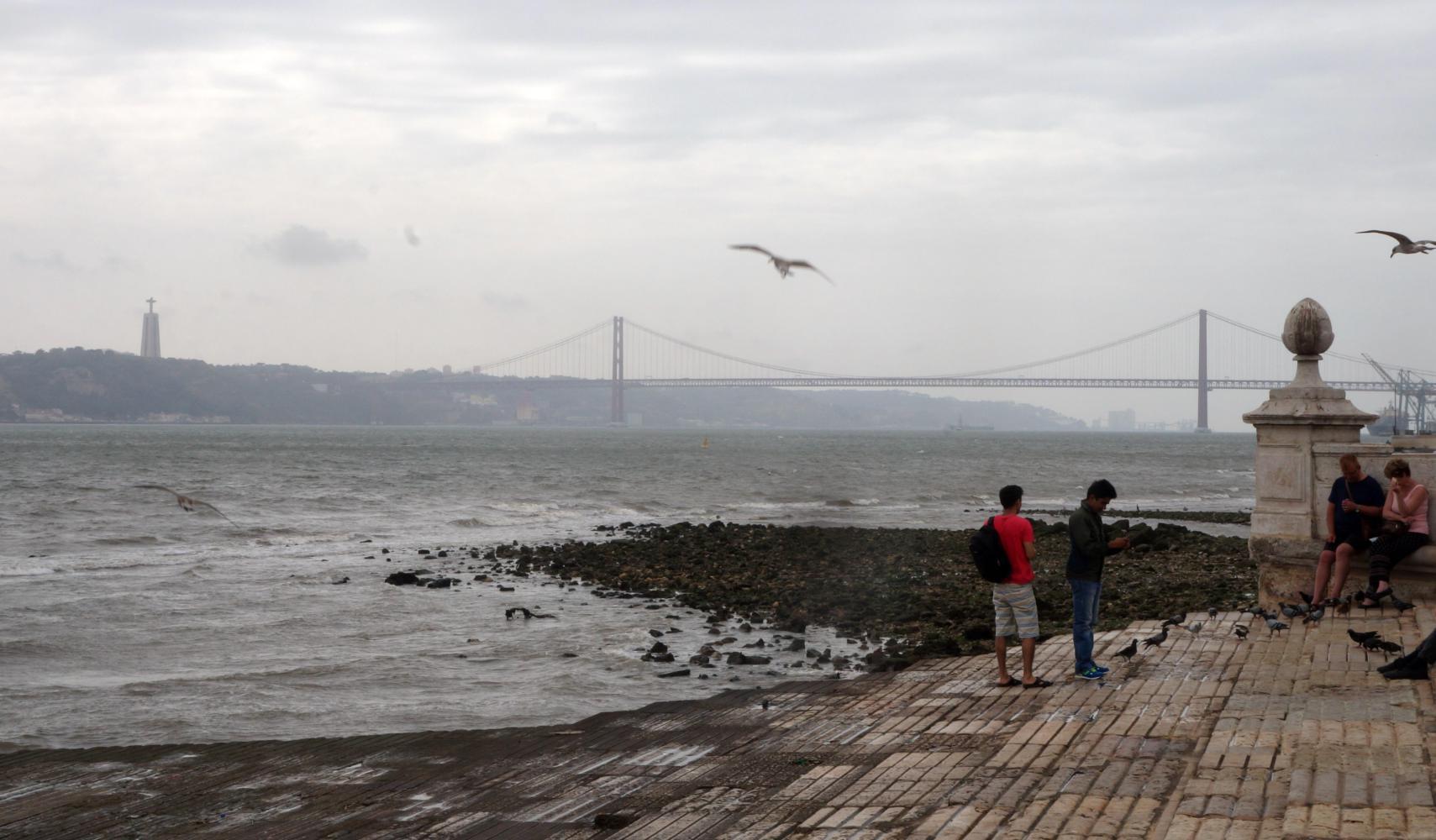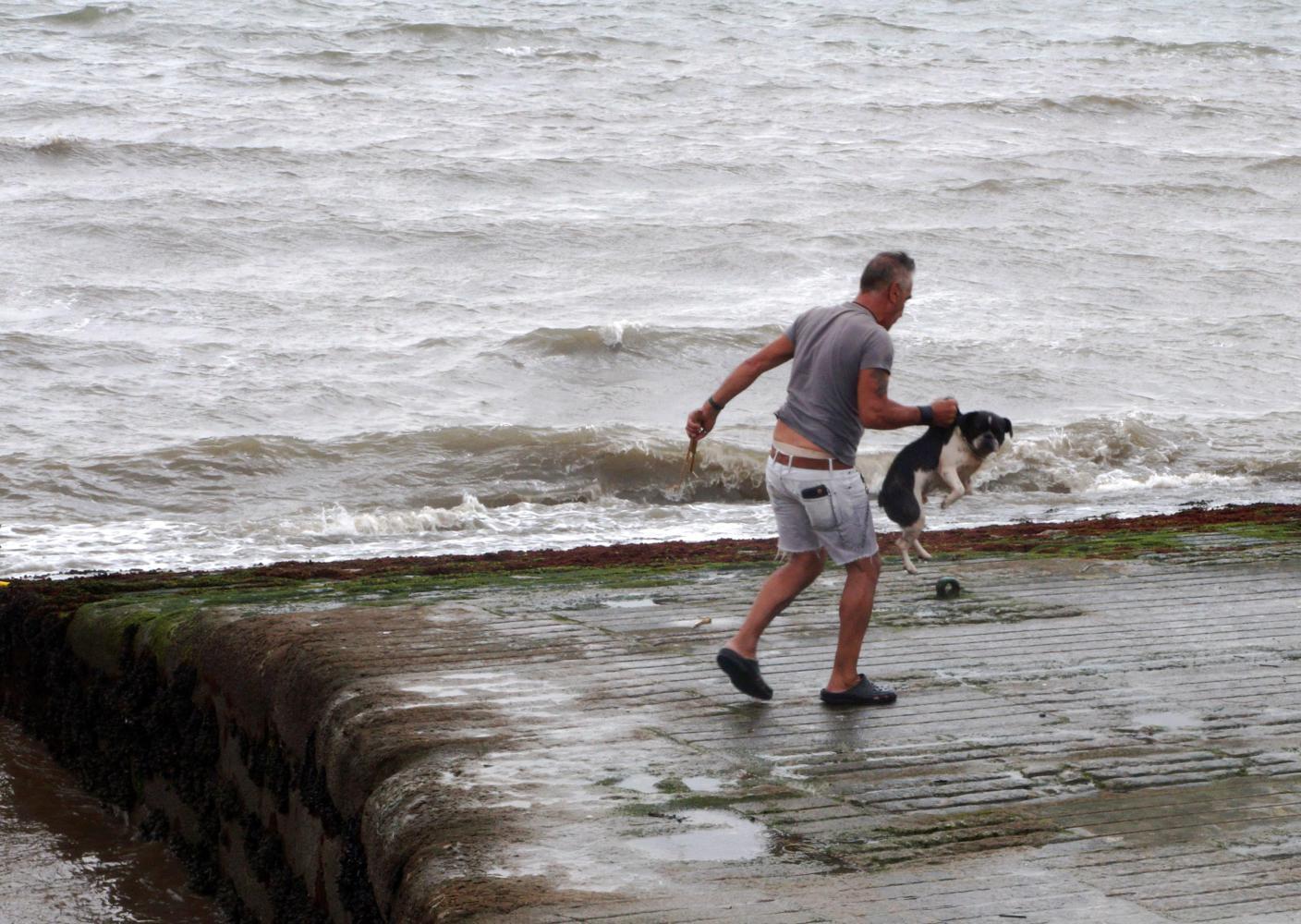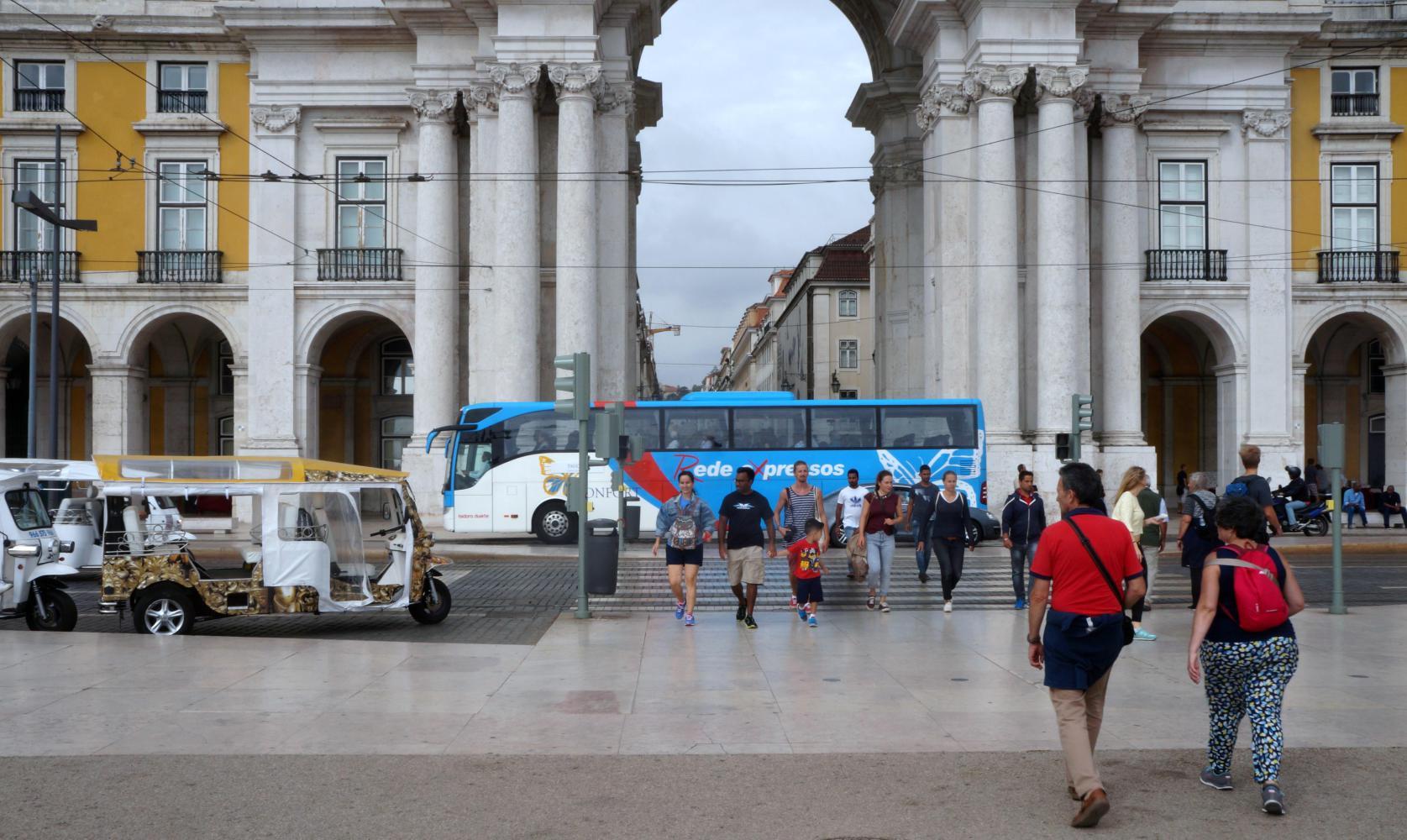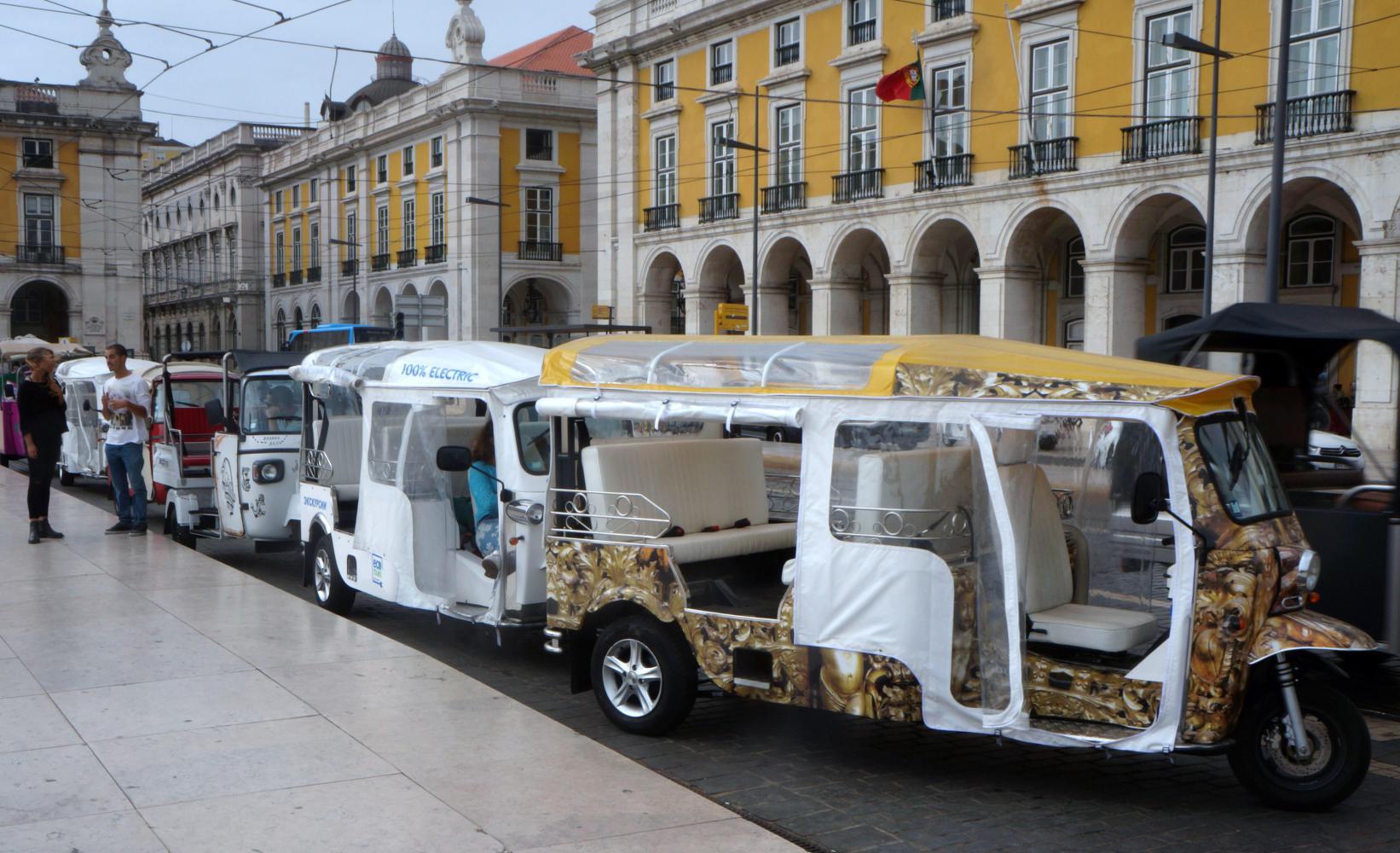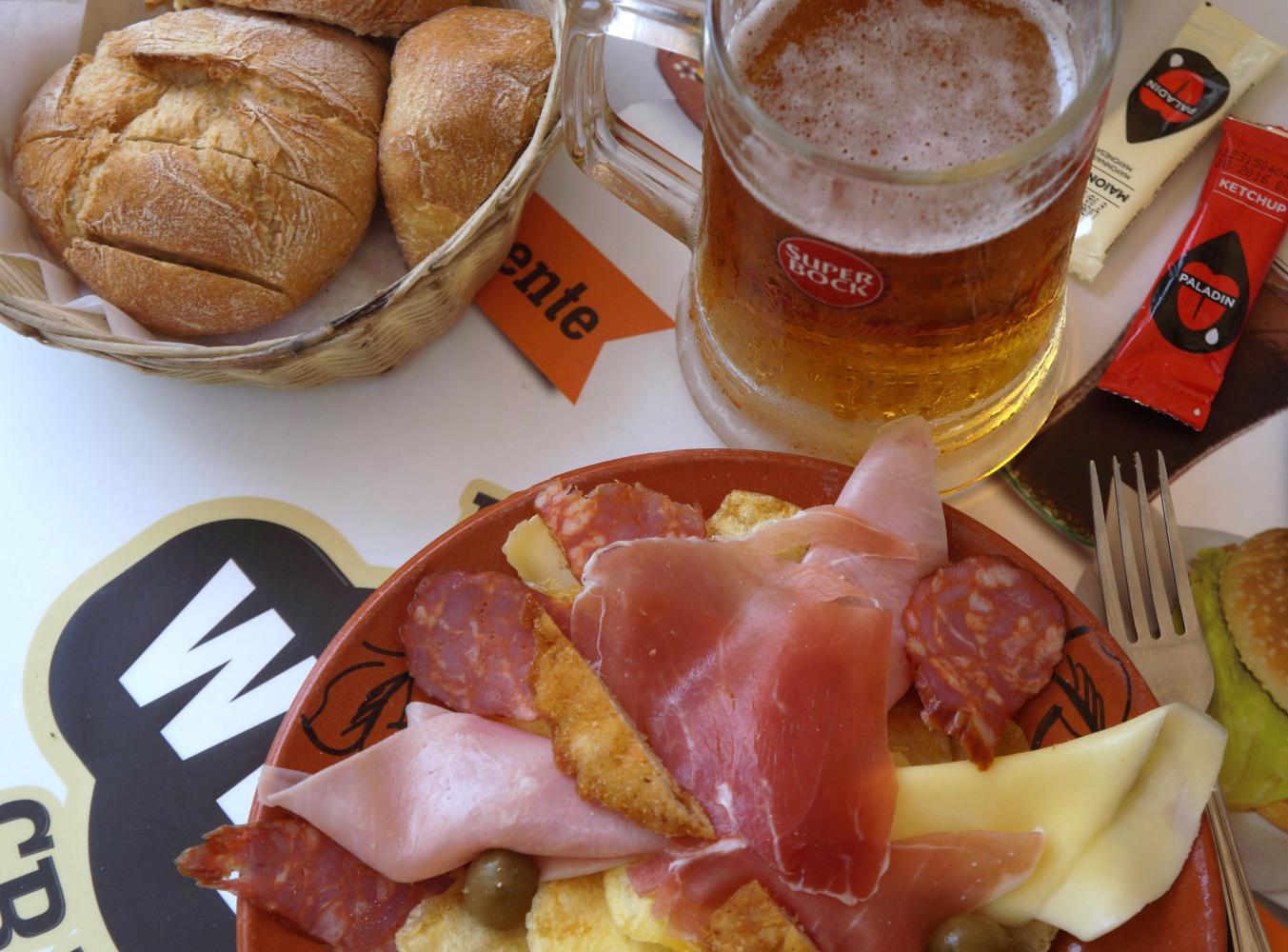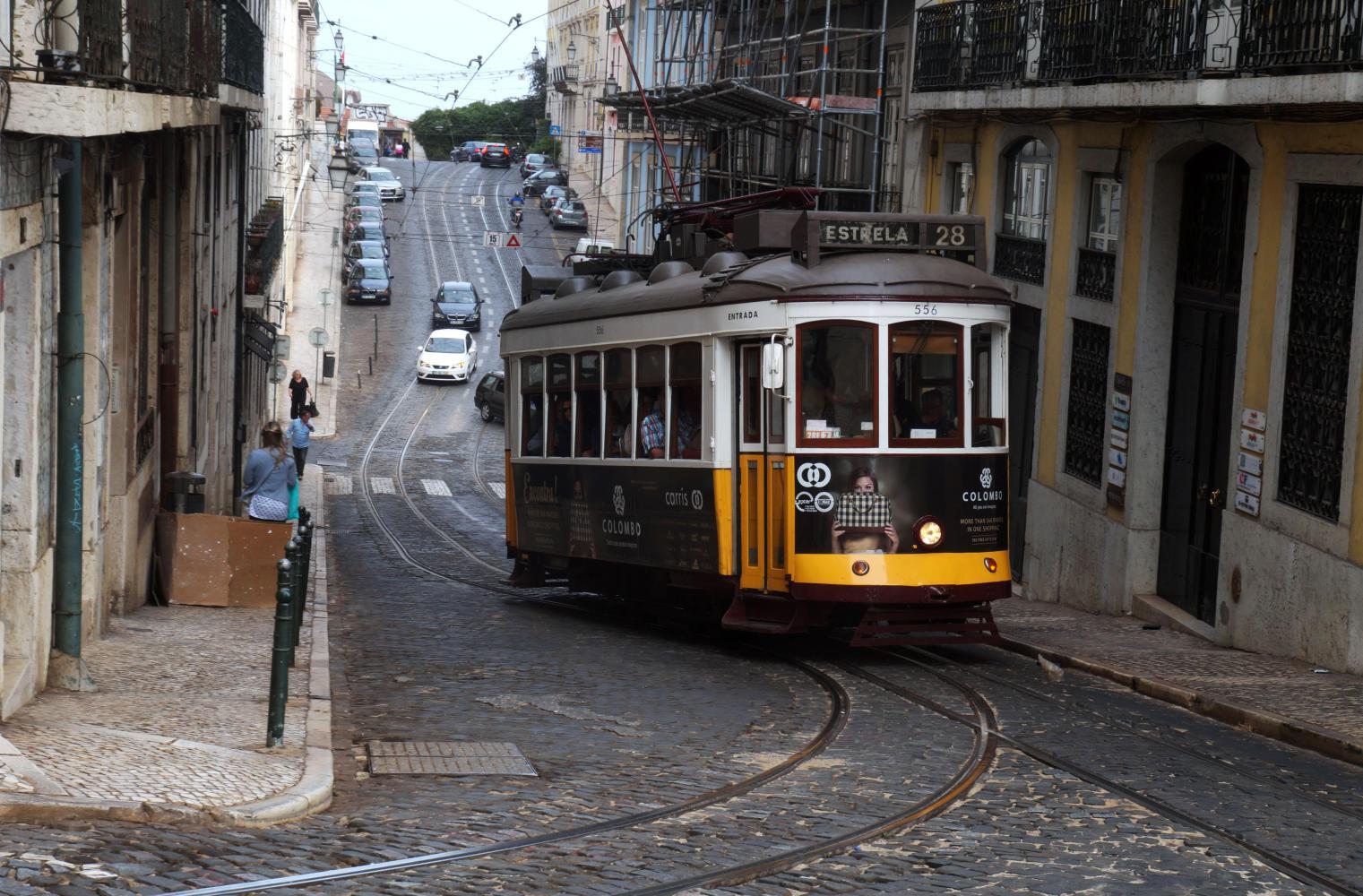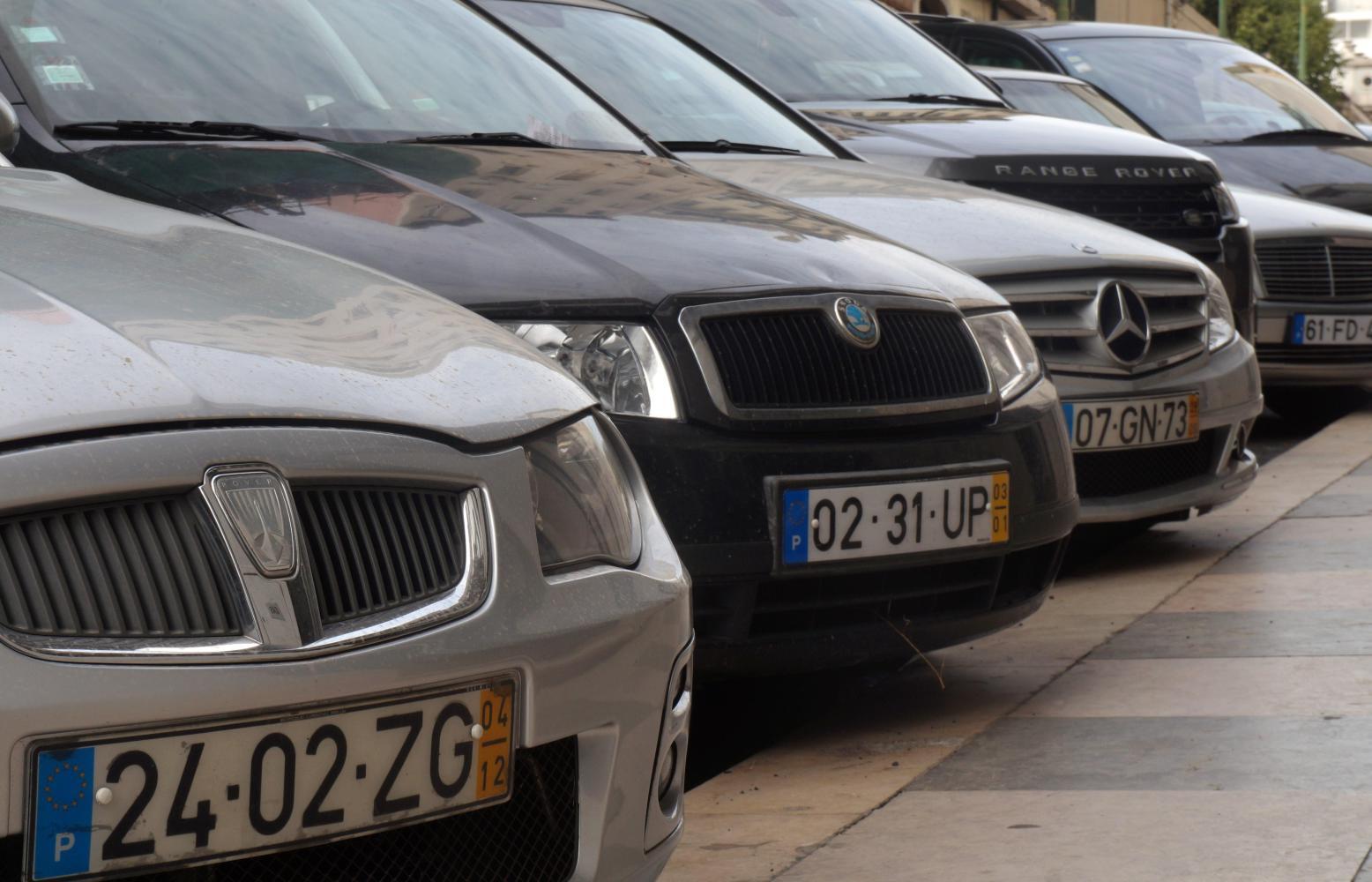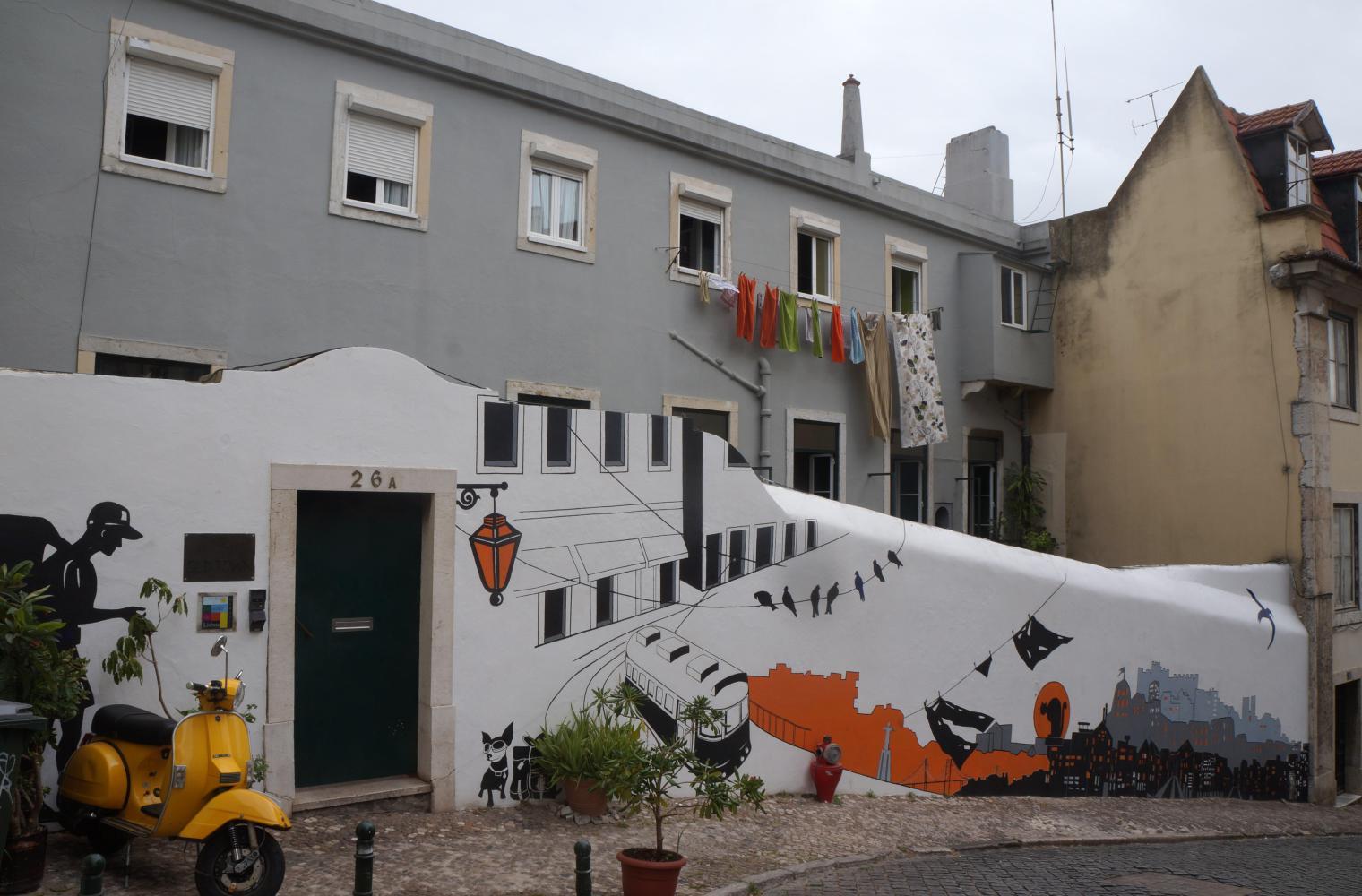September 30, 2015
Old Town: Time Out in Lisbon.
Plebe I find in a wordlist, meaning, well, it was what a furious Conservative member of the English parliament called a policeman that told him he couldn't cycle along a certain street, meaning lower class, common, or even coarse insofar as being unrefined. Something he regarded himself as anything but, which caused an outcry and image problem for a ruling Party trying to appear classless, down with the people.
The word and much more are all here on www.thrsaurus.com useful as a spelling check tool, Windows having ceased to work. It is also useful to look up an alternative of a given word, in the case where I find myself using a word too soon, having a few lines previously used the same word.
It may not be all that interesting, but it's what I do while preparing to write a journal page. It's easy yes to write what happened on a given day, but it take's a bit of time to infuse curiosity and empathy so that it'll be a joy to read.
Writing in the morning is best, or so it is said, which makes sense. When both body and mind is rested. I usually knock out nine-hundred to a thousand words in four hours, going back over and editing each paragraph as I go, so I only need to proof read the once before publishing.
Usually I get the map and photos out of the way first and write captions if necessary. It then takes twenty minutes to half an hour procrastinating here on Crazy Guy On A Bike, or getting comfortable with the computer in front of me. I cannot just sit down cold and start writing. I read forum posts and journals which take my interest. I'm hooked on the currant journal of Leo Woodland. Leo is such a treasure to the site. His writing so thought provoking. I was particular taken when He chats with "half cut" Ulstermen in Durham, leading to broadcaster Gerry Anderson, who on-air would call his native city "Derry / Londonderry" to get over the disagreement regarding the city's name between the two sides of the sectarian divide, which led to the unofficial coining of "Stroke City"
He had a slot from 10.30 to 12.00 each weekday morning on BBC Radio Ulster, called The Gerry Anderson Show, with co-presenter, BBC Radio Foyle's Sean Coyle, who as sidekick was the target of Gerry's unique humour. He would take calls into the show in which the caller would speak live on radio; a regular was Geordie Tuft, an elderly farmer from Loughbrickland, who offered advice to listeners regarding odd behaviour in farm animals, particularly goats; recommended Jeyes Fluid for shampooing dogs and how to dung out a bed. Between bouts of hilarious banter, Gerry would put on music, but never play listener requests. so avoiding cheesy hit songs. He played Johnny Cash often. He claimed to have met Elvis while touring in a band as a bass-player. Most of the music on the show though, was up-and-coming alternative music across a range of popular music genres, which you wouldn't hear on commercial radio. He would tongue in cheek berate Sean, after returning to the show from a day doing something else in which Sean hosted the show alone: to paraphrase, "I'm just back and already there's all these calls complaining about the music you played yesterday".
I had been away and after returning, wondered why The Gerry Anderson Show, was no longer on the air, and so asked "what has happened to Gerry in the morning?" "Gerry died" I was told.
Thought provoking too is Leo's reference to the seventies as an otherwise gloomy decade.
Well it depends. For me it was a catacomb of happy childhood memories living in the countryside with the interplay of nature and farming. The earthy smell of ploughing in Spring. When swallows would tweeter and fly in and out from nests in barn roof-trusts. The rich yellow hue and aroma of gorse bushes and white blossom of hawthorn. Apple orchards in abandon farmhouse gardens. The smell of ripe barley and hum of harvest and bramble hedges full of blackberries. Crow blackened sky, squawking and roosting on electricity lines, a sign of rain on the way. Abundant red berries on blackthorns in Autumn, a sign of a harsh winter in store.
There were few cars on the road then and we walked two kilometres to school each morning and back in the afternoon on an empty country road. My father would only use the car on occasion. To mass on Sunday and to granny's on Sunday afternoon. Shopping was delivered from a shop in a near village, mainly canned food, flour for baking bread, butter and tea. Any vegetables we ate we grew ourselves and jam was made from gooseberries, blackberries or whatever other wild fruit was available to gather.
The violence in the north of Ireland of the time was something heard on the radio or on the television evening news (daytime TV thankfully didn't exist yet). Though there were an awful lot of English squaddies everywhere, Army Land Rovers on the road and menacing low flying helicopters.
The outer world came through radio and television news. The BBC then had a reporter called Martin Bell, who'd pop up sternly with his micro-phone in a conflict scene in the Middle East, or be at a visit somewhere of that infamous American Henry Kissinger. There was war in Angola. Ian Smith's Rodesia was always in the news. In America there was Nixen, Ford and Carter. France had Valery d'Estaing. Germany was West Germany, with East Germany partitioned off behind the Iron curtain. It was unclear who was president in the south (Ireland), but across the water, there was Heath, Calaughan (my spelling) and then at a tea-time in the Spring of seventy-nine, Thatcher appeared blue-coated on the door of 10 Downing Street, waving to cameras and read a speech "Where there is darkness, let there be light. Where there is disharmony, let there..." or something in that vain, having been elected to office. The General Election took place in the shadow of "The Winter of Discontent" in Britain, when there was widespread strikes bringing the country to a standstill. Worse was to come and in the following decade, she'd become the most hated Premier of modern time, in Britain, Ireland, and Argentina.
Having put off and procrastinated more, resulting in rattling on here, and some of you, will be feeling bored at this point. I can now report having the journal up to date.
I had a bit of distraction a while ago when a man with a Dutch accent checked into the hostel, as I sat with my back to reception tapping away.
Then he come round where I can see him and sits beside me. It is unclear from where he originates, I'd guest South India, says he has lived in Holland seven years, but because he can't find a job there, has, and this is the strange part, has come to Portugal looking for a job and because of his failure to find anything, is penniless, so begs and sleeps rough whenever he hasn't got what he needs for a night in a hostel. He greets me endearingly as brother when we exchange names and I ask "Couldn't you have got unemployment benefit in Holland?" to an answer "They wouldn't give me" " Ah well, perhaps they've tighten up the rules. Well the crux is, and I see it coming, he asks "You couldn't take me to lunch?" I shrug and say I'm not long after breakfast. He left me alone then.
I go out to look for a barbershop, needing to get my beard trimmed or shaved off completely, it being at the stage where it gets in my mouth when eating. I do an awful walking seeing no such business and wonder what do people do for haircuts here. I passed one by because it was more a hairdressing saloon for men and pricy looking. A traditional old barbershop with a barber's poll is the one I'm looking for. I walk all over the centre until eventually, with relieve I come to one, an old fashion type place with big chairs a grey haired barber props up. When he put the apron on me, his equally old wife come out and offers to manicure my nails, which I decline. I request my face clean-shaven and then watch while he works away with an old cut-throat razor, like an open pen-knife, aware that one slip could be bloody and painful.
I return to the hostel a different way hitherto un-walked and pass two more barbershops. More importantly two bike shops. The second stocking Schwalbe touring tyres and Orblieb panniers as well as most other things necessary.
The Old Town hostel is a hive of noise now. A huge group, I estimate two dozen nineteen-year old tall and blond French girls, erasmus students have turned up and chirp incessantly loudly. Everything they do is load. And they occupy every space. I walk out to a long balcony for peace and they are there too. The reception girl, who happens also to be French, is there at that moment and sees the resignation on my face, remarks sympathetically with a smile "Its a dan-jourus spot".
I shall be here a few days more.
And while the reader perhaps thinks a photo or two of Lisbon is amiss, I'm working on it.
Standby for uploading.
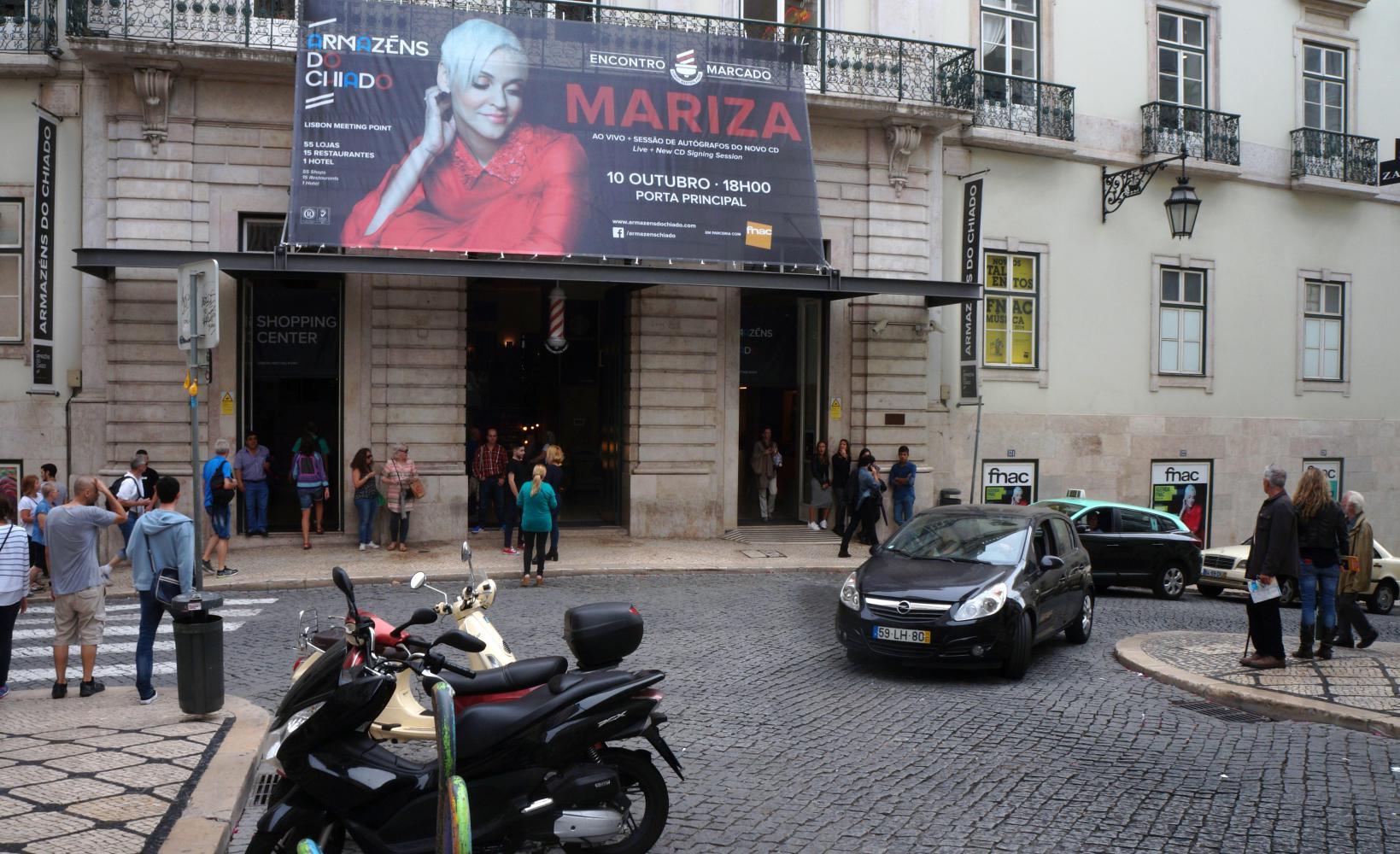
| Heart | 0 | Comment | 0 | Link |
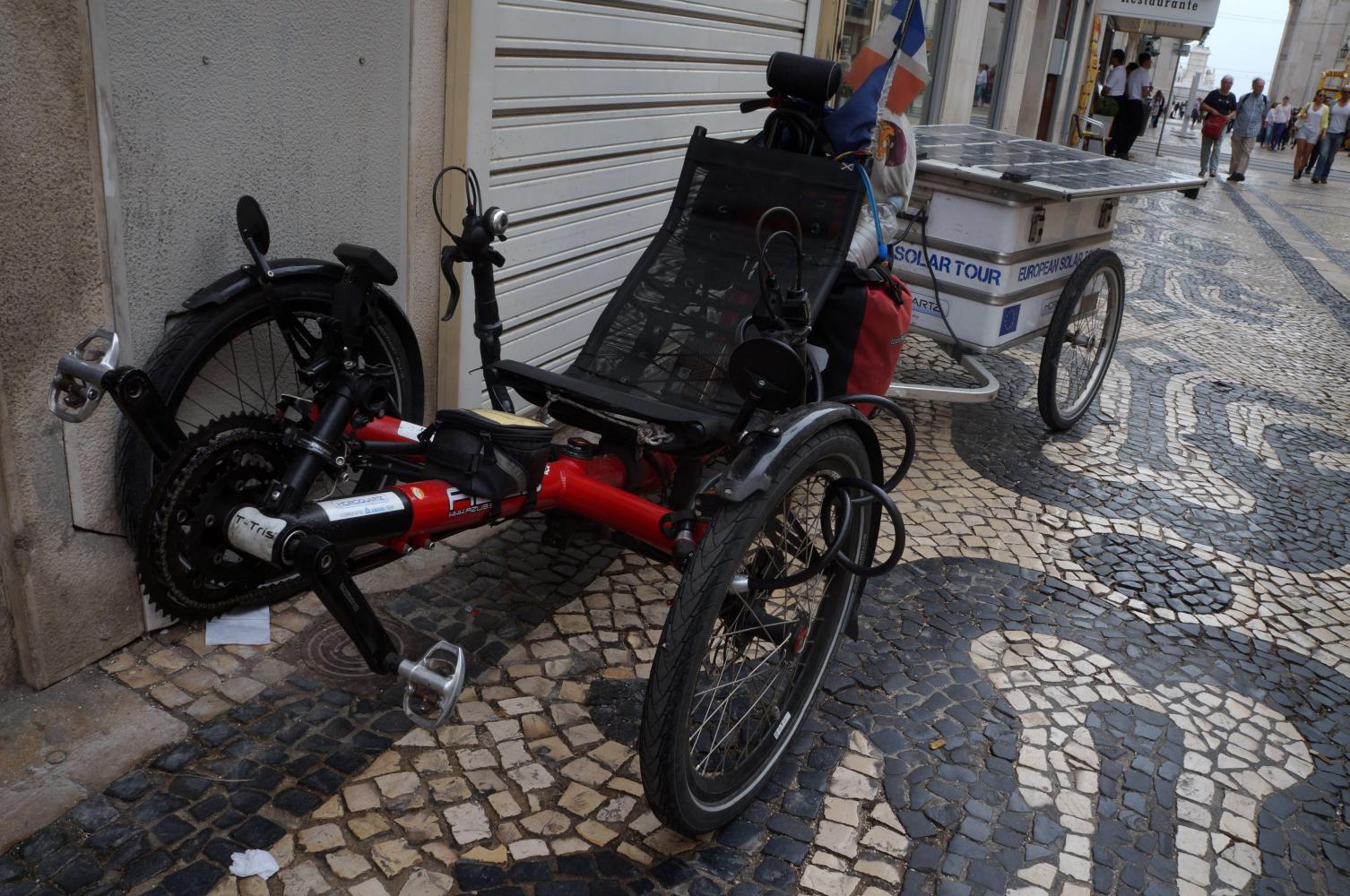
| Heart | 0 | Comment | 0 | Link |
| Rate this entry's writing | Heart | 0 |
| Comment on this entry | Comment | 0 |
